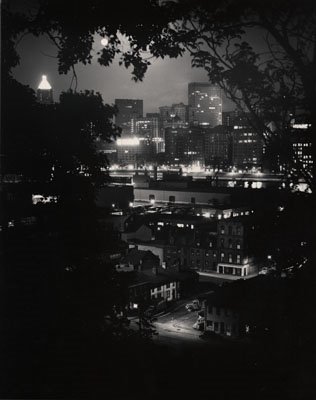Back on topic - What I am Reading: My neighbor had a copy of McSweeney's The Panorama Book Review, in which an interview with Junot Diaz caught my eye. I've read many interviews of Junot Diaz and each interview always convinces me that Diaz is an all-around awesome guy that I should read. So what I'm reading now is The Brief Wondrous Life of Oscar Wao, which won the Pulitzer Prize in 2008.
I am not far enough along in the book to pass on any great quotes about it, but here is something else I have been thinking about in terms of writing:
What's the importance of audience when you are writing fiction?
In the McSweeney's interview I mentioned above, Diaz said:
When I was writing this book [The Brief Wondrous Life of Oscar Wao], I was very aware in my head that I was writing about Dominicans in New Jersey - and that while I considered this experience universal that's not the way it's usually viewed by the larger world. But it's not like I could dumb it down because if I tried to write for some sort of vague mainstream audience, I would just lose everything that mattered in the book, I would lose all the awesome specificity and have nothing in the end to show for it.In the few chapters of The Brief Wondrous Life of Oscar Wao that I read, I can really see what Diaz meant. There were such specific details about Dominican life that he wove into the story in such a natural way - not in a way to explain it to the uninitiated, but in a way that tells you this is just what life was about for him.
...
If you're a writer like me, writing about people of color who are not always viewed as the center of the universe, you have to rely on your core readers, and on people who are nuanced readers, to keep your book alive...I think you should always write to the most specific audience imaginable, and from there springs the universal. It's not the opposite way - you don't write to a very big audience, and assume that's going to make your work universal. Every book that we continue to read a hundred years later, the thing that really joins it to other books that we're stlil reading a hundred years later is the extraordinary specificity.
Separately, in a New York Times profile of James Patterson (which I really enjoyed), I ran into the question of audience again. Patterson wrote "Along Came a Spider" and "Kiss the Girls" - he is such a prolific author that he has 51 novels on the New York Times Best Sellers list, 35 of which went to No. 1. Some derogatively call Patterson an "airport author"but his popularity is undeniable.
From the profile:
Patterson considers himself as an entertainer, not a man of letters. Still, he bristles when he hears one of his books described as a guilty pleasure: “Why should anyone feel guilty about reading a book?” Patterson said that what he does — coming up with stories that will resonate with a lot of people and rendering them in a readable style — is no different from what King, Grisham and other popular authors do. “I have a saying,” Patterson told me. “If you want to write for yourself, get a diary. If you want to write for a few friends, get a blog. But if you want to write for a lot of people, think about them a little bit. What do they like? What are their needs? A lot of people in this country go through their days numb. They need to be entertained. They need to feel something.”
I have a short story and an essay that I am trying to finish, and I think audience is always the biggest question for me. Who am I writing this for? Why should my audience want to read it? Would I want to read it? I haven't found any easy answers for this yet.


E,
ReplyDeleteLoved all of this. Now I want to read Junot Dias. What a great name. I want that name. And I agree 100% with what he said about specificity. Tolstoy wouldn't be Tolstoy if we didn't know all those wonderful nuances about 19th century aristocratic Russia.
I actually just read James Patterson. My brother Chris recommended Along Came a Spider. It was very good and scared the crap out of me. I tend to read novels before bed and I'm not good with these serial killer type novels. They give me bad dreams. Did anyone see the movie Gone Baby Gone? Ugh. That one was a huge mistake for me. Some of the those images are very hard to shake.
Is it weird that when i write I NEVER think about the reader? I think elementary thoughts like, "I wonder if anyone will care about this character?" But I never imagine who that person is.
All great things to think about, E. Thanks.
P.S. If you need a gentle reader, please think of me. I'm always happy to read your stuff!
ReplyDelete